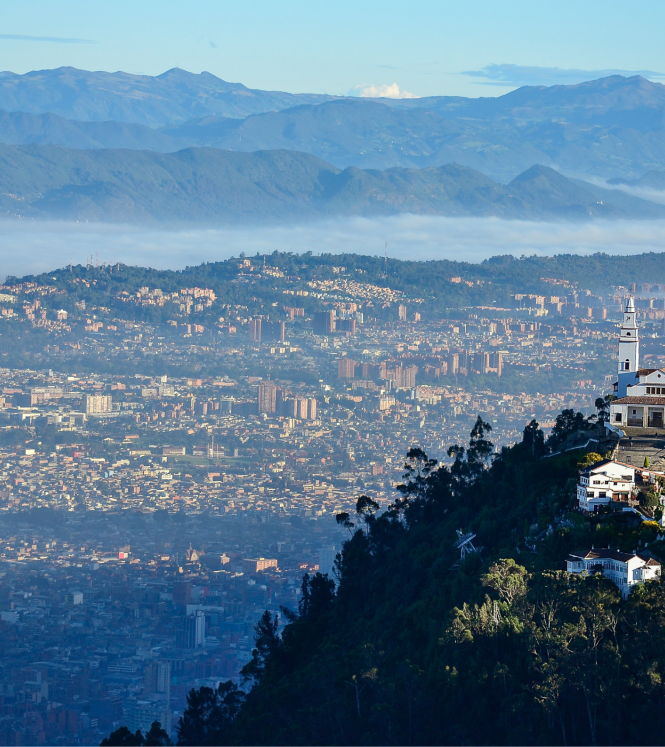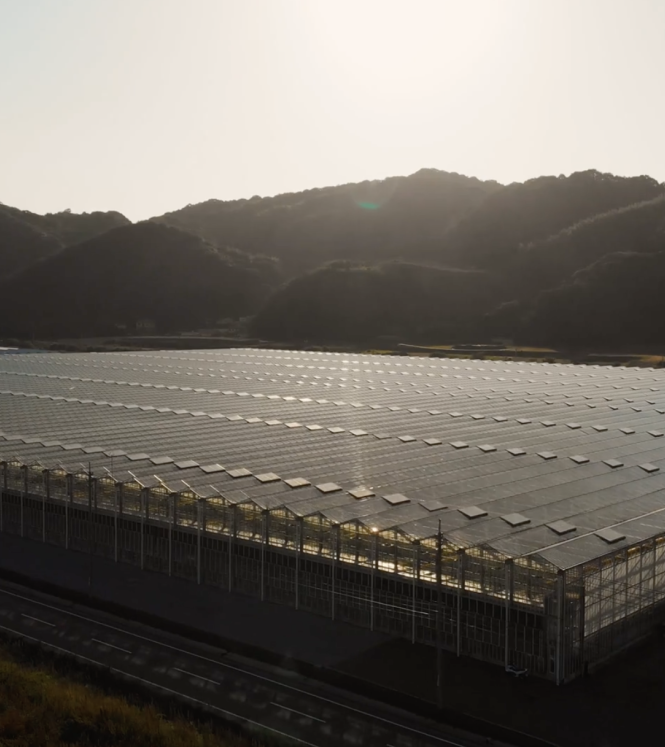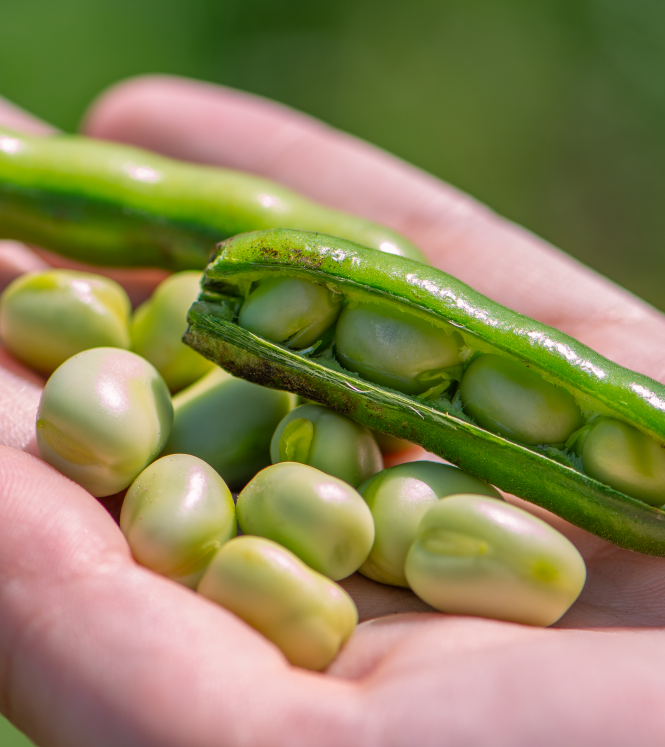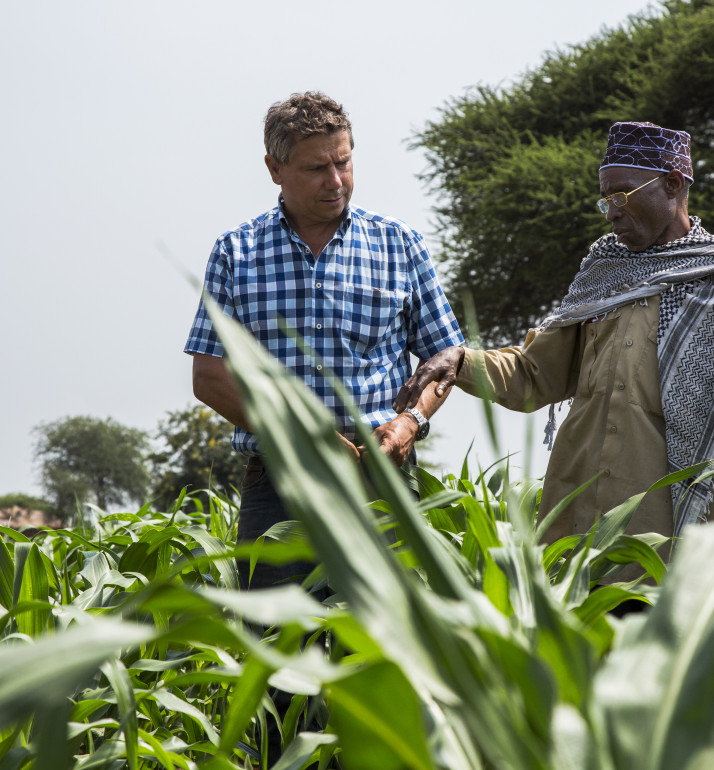
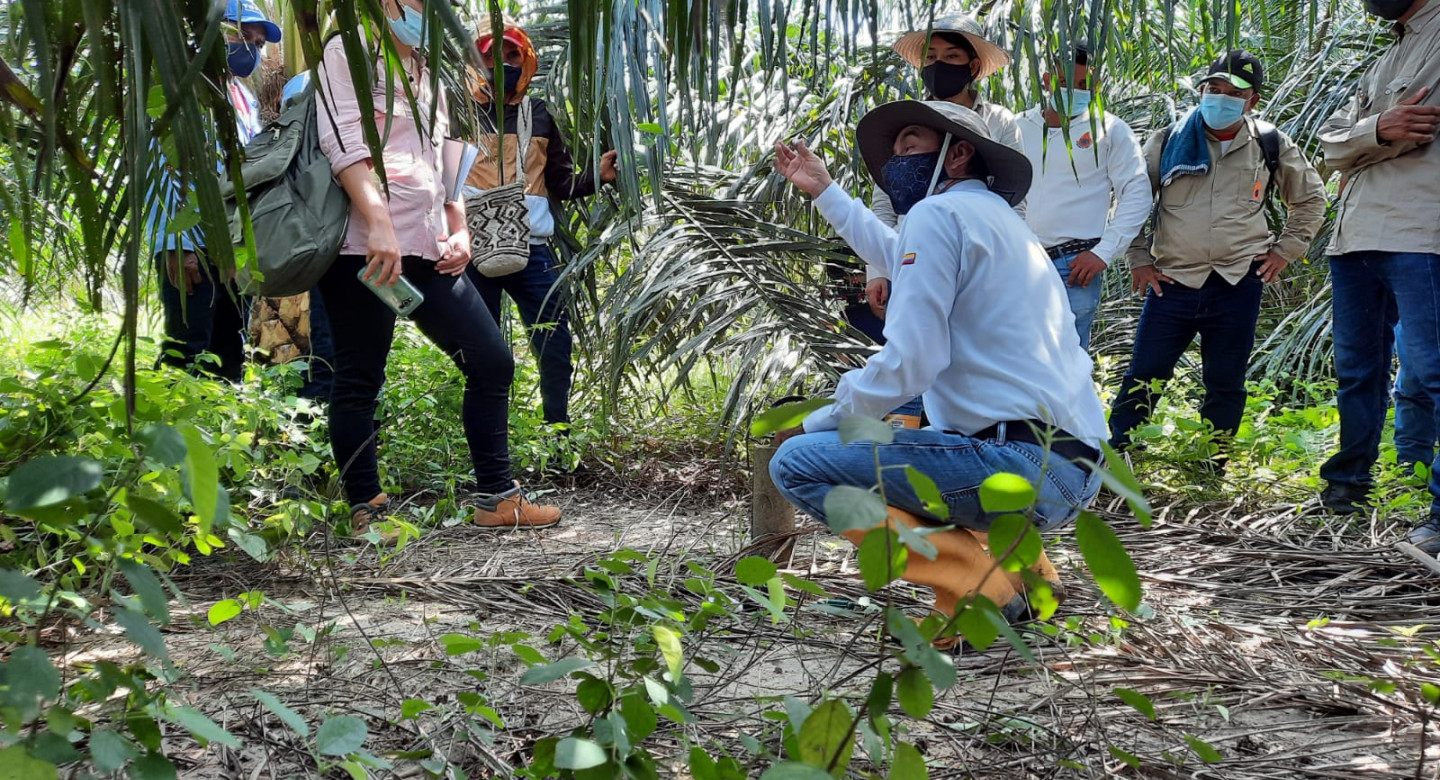
Optimising water use for Colombia’s palm oil
As the world population continues to grow, scarce resources such as water, energy and food are increasingly under pressure. To feed a population of 10 billion by 2050, we need to go beyond improving our agricultural productivity. New irrigation and fertigation methods can help us make the best of limited water resources and allow farmers to grow more crop per drop. A Dutch-Colombian partnership is working on increasing water efficiency in one of Colombia’s most important agricultural sectors: the palm oil industry.
Palm oil is used in many products, from shampoo and cosmetics to paint and pretty much all processed food. It is a cheap and rather efficient crop, producing better yields with less fertiliser or pesticides than its alternatives. At the same time, concerned consumers demand that the industry takes a critical look at the pressure it exerts on natural resources, biodiversity and local communities. Colombia is a global leader in producing certified sustainable palm oil, and nearly all export is certified. Alongside increasing the share of certified palm oil, optimising water use could be another step towards making the palm oil industry more sustainable.
Water scarcity in Magdalena
The Magdalena department in the north of Colombia is home to some 750 palm oil producers. Like farmers all over the world, they feel the effects of climate change. Production here is regularly hampered by water scarcity and water stress, especially in the dry season. As rivers run dry and deforestation continues, agriculture suffers. And it is exactly in the 5-6 months when rainfall is at its lowest, that water demand for oil palm cultivation is at its peak. What does not help is that many farmers still use furrow irrigation, a method with very low water efficiency. As some 13% of the Colombian palm oil is exported to the Netherlands, Colombian and Dutch parties have joined hands to improve the efficiency of water use in the palm oil industry.
Combining public and private knowledge
What makes this collaboration unique is not just that the partners come from two different countries, but also that they come from different business sectors. The project team consists of NGO Solidaridad Network and Delphy and FutureWater, two leading Dutch research and consultancy firms specialising in agriculture and water issues, respectively. Their local partner is Cenipalma, a research institute connected to Fedepalma, the Colombian association of palm oil growers. Since 2019, Fenepalma and Cenipalma have led the Colombian National Sustainable Palm Oil Program (APSCO), which aims to accelerate and scale efforts to adopt more social and environmental practices across the supply chain. The project was funded by RVO’s Partners for Water programme.
Each partner brings its own set of skills to the table. Delphy’s project manager Lotte Demmink: "Cenipalma and Solidaridad are experts in the field of palm oil production in Colombia. They strengthen the expertise of the Dutch parties and embed it locally."
"Cenipalma and Solidaridad are experts in the field of palm oil production in Colombia. They strengthen the expertise of the Dutch parties and embed it locally"
Furrow, sprinkler or drip irrigation?
The project team set out to identify factors limiting the adoption of more water-efficient systems, and, subsequently, make recommendations to address these issues. They found plenty of bottlenecks, from high investment costs and short repayment periods to theft of sprinklers. Their next challenge? To determine the most efficient irrigation method, taking these limitations into account.
To compare methods, the researchers set up demonstration fields with different irrigation and fertigation systems. Using a satellite data-based irrigation tool, they found out that drought stress caused yield loss in fields with traditional furrow irrigation, but not in fields using sprinkler or drop irrigation. They discovered that as much as two-thirds of the water could be saved using these new systems.
Combining the knowledge from the field experiments and interviews with local farmers, the pilot concluded with a clear recommendation for the region. Although sprinkler irrigation turned out to be the cheapest option to save water, the more expensive drip irrigation systems performed slightly better in terms of water use and productivity. And even better: unlike sprinklers, drip irrigation systems cannot be stolen!
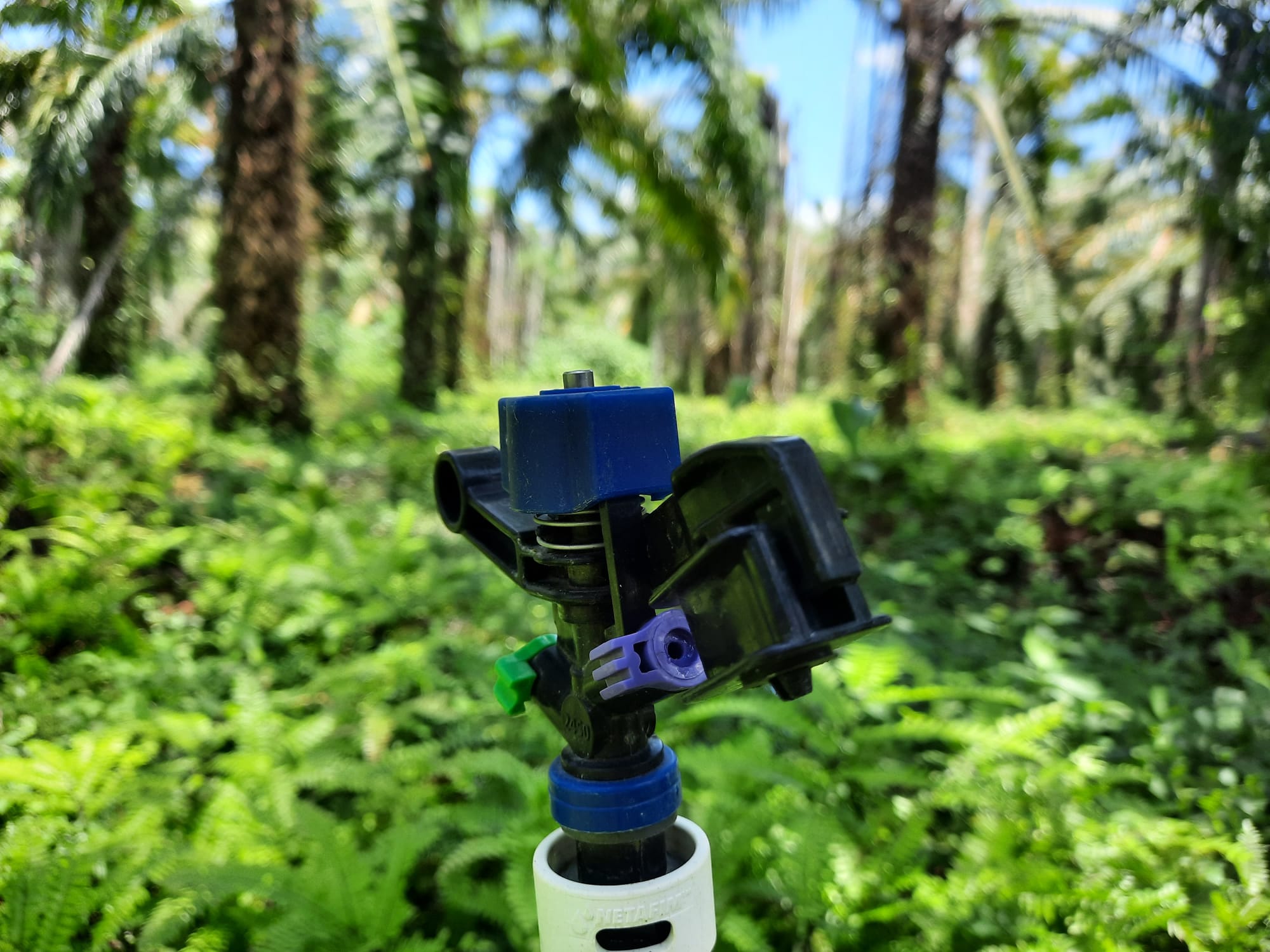
The next steps
The team plans to continue their research on water-efficient systems in the region. Cenipalma is using the pilot’s results to prove the benefits of adopting new irrigation techniques to local farmers and is offering technical assistance to stimulate implementation of these new methods. A group of lead farmers will be trained in topics such as soil moisture monitoring and using water, pH and electrical conductivity meters, but also using organic residues and cover crops. And in their turn, lead farmers spread their knowledge among their colleagues and neighbours.
Cenipalma also works with the local authorities, the water authorities and sector organisations to develop an action plan to tackle water scarcity in the region and ensure that the adoption of new irrigation systems in one part of the region does not lead to water issues elsewhere. With banks and local and national authorities, Cenipalma also helps farmers overcome the financial problems holding the adoption of new water-efficient systems back.
Demmink also sees opportunities to implement the lessons learnt in other regions: “The results from this pilot can be scaled, especially in other regions in the north that also suffer from water scarcity in the dry season. In addition to that, the results could be of interest to other palm oil producing regions outside of Colombia also facing water scarcity.”
“The results from this pilot can be scaled, especially in other regions in the north that also suffer from water scarcity in the dry season”

